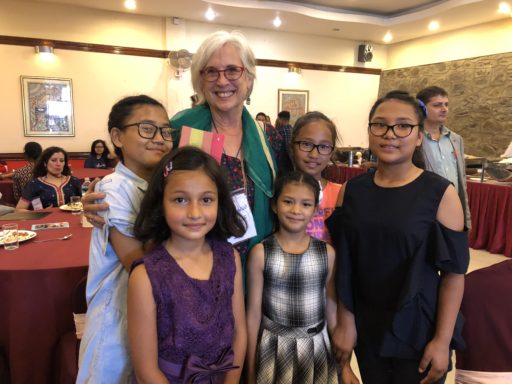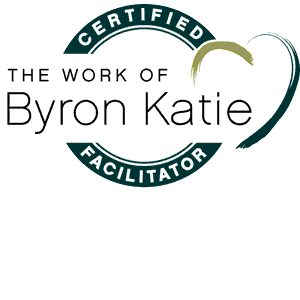Epiphany, Resolutions, and A Sideward Step

Many years ago, I sat down with my calendar almost a week after the new year. A cup of coffee in my hand and a pad of legal-sized paper by my side, I was all set to write down my New Year’s resolutions. Always determined to work on myself, it felt like my best shot for self-reflection in my hurried life to write that list. My kids were back in school and I had a whole two hours after my teaching job with an empty house before the school buses showed up. The cookies and party mix were out of the cupboards, and the Christmas tree was at the curb, so distractions were minimal. But instead of writing resolutions, I stared out the window at the dreary weather.
January had scared me for years, ever since I endured a serious depression right after the holidays, a heavy cloud that lasted an entire year. I gradually filled my life and my home with children and friends and good work. Not to mention discipline, which is why I was making these resolutions in the first place. Over time, when I had the time, I had done some journaling, but this was a List, not a daily diary entry. These were my important yearly goals, after all.
I sat looking back at the calendar. Next to the date, January 6, was one word: Epiphany. Something shifted. This was different. I LOVED epiphanies, just like any other good English major. So I picked up the pen, hoping to catch some and write them down. I immediately dropped into a sense I could only call “home.” I took the first full breath in a month. My whole body sighed in layers, like after a good cry, followed by an ineffable sense of peace. Glimpses of possibilities for the next year just sort of occurred to me, so I wrote them down. One after another, ideas popped. A subtle sense of illumination accompanied each pop .
Later I looked up the liturgical holiday. Epiphany. Having been raised in the Southern Baptist church, I had never even HEARD of such a calendar. This was Three Kings Day. The day the sages of the East arrived in the West, following a star. A day for celebration and giving to children in Latino cultures. Never having been a Latina or a Catholic, I immediately felt a kinship through the sheer beauty of this holiday. For me it felt like a coming home, this pause, this sideward step in time. I decided to make it my own little secret. And having decreed this then, it has been so, throughout the following decades, except for one thing. I kept telling my friends. Many of them adopted the holiday for themselves. One of them led a beautiful day-long workshop on the theme of epiphany. I kept writing about it on this blog. This year I received a text with a photo of a friend’s daughter with a big slice of “Three Kings Cake,” a celebration they shared on Twitter as well. In some ways it feels like a secret society. Just you and me and a few million others.
This year I decided Epiphany is too short, so I’ve decided to extend my personal holiday for a year. Because what it offers me is a Pause button. A Sideward Step into spaciousness, kindness, awareness. A short cut to the simplicity of being.
The Sideward Step
There’s a sideward step
in this decade,
this moment of life.
A letting go of the ways
I’ve learned to walk love
here on this planet.
There’s a choosing of something quieter
than the doings of fear
for future, for world.
Way calmer than this apparent chaos.
It’s a huge place just outside
the old magnetic pull of habit.
In the nanosecond inside a pause
When I remember
I take a micro step
to that parallel place
just on the other side of the dark carnival of
Politics, pop culture, personality.
Each day I celebrate
the epiphany of remembering
To take the slight leap
To land safely inside sanity
I come to the way of this knowing.
Always here. Always has been .
Solstice Retrospection

“Life itself will be my Art,” I told my friends late one night in the profound philosophical depths of my sophomore year in college . Even as I said it, I felt the truth of it. I was up to the challenge of it. Life would give me my lessons and I would respond artistically. Easy. That was as specific as I got. A pretty vague sense of surrender there, I now see.
In the 50-plus years that have followed, the specifics got real. For the first ten years I thought I would have a charmed (meaning easy) life. Instead of that hopeful and naïve view, my life has been marked by untimely deaths, suicides, drownings, fires and general disappointments. The losses have been far more than I bargained for.
And yet… the blessings of life’s challenges have also rained down. From retrospect there is a sense of the rightness of those things I couldn’t control (like the Universe itself). Always, always I was carried safely to some understanding. But I’ve only known this when I’ve looked into the rearview mirror with an open mind.
I have many artist friends who are hanging retrospectives of their work at this time of life. As I sit in my study and look around and within, my life of art shows itself in a more inner landscape. Solstice brings me that gift every year, on exactly this day. It’s almost my favorite holiday because it’s the day of my own private Ritual of Retrospection. I arise before dawn or sit in the dark following sunset in a warm candle-lit room. All around me are icons that take me to that deep place inside. A painting of Mother and child, crystal waves and labyrinths, sacred hearts, a copper Saraswati, and the divine Sacre Coeur. In the soft golden glow I ask to see the what I haven’t seen before, what I’ve been missing in the rush of the year. I ask forgiveness from my inner critic for my human failings. And then I count on Grace to show me what else I’ve missed: the beauty that I have been in the perfection of all that has passed.
With that soft lens I go back further in my life, reflecting on all of it, the ways I have showed up and haven’t, how I’ve learned to refine the art from my mistakes, and the ways I’ve allowed my light to shine as a result. I see myself as the truly innocent child and when the candle light is just right, I see the perfection of this incredible woven tapestry.
And because my heart is so full of gratitude for all of it, I write you this morning and invite you to do the same for yourself. During this season may you find time for reflection, to be kind to yourself alone in a room full of soft candle light (bath and bubbles optional). May you meet your kindest self. May you find the art in all of it, all of this thing you call your life.
Walking into the Deep Mystery of Sleep

Sleep has been elusive this past month. First there were the two weeks of jet lag, when I unpacked my bags and waited for all my cells to arrive back home. As I tried to drift off, rich sensory images of the East re-visited me, providing entertainment. But not sleep. I have long had a habit of mining the in-between of re-entry to arrive home with new eyes, to notice what I might have missed before. So my mind has been plenty busy with that a good part of the night.
This is largely because I immediately realized that my home itself had changed in my absence. The jitteriness all around me was immediately palpable, and this feeling of being on tenterhooks has led up to the election that is taking place as I write. This contagious worry and fear and dread has circulated like an arctic current for the last month, and the hope is that some of it will be alleviated when the polls close tonight.
For me, soothing has come from Medieval mystics, like Julian of Norwich, who famously wrote “all will be well, and all will be well, and all matter of things shall be well.” Except she didn’t write those exact words because she was the first woman to write a book in Middle English. Who knew? What has helped is knowing the world around her was far darker and crazier than ours, and yet her vision was of an unseen future far more hopeful than the plagues and burnings happening all around her.
And then there are visionaries from our time, like Arlie Hochschild, whose interview on On Being has sustained me through this election cycle.
These are the things I remember when I’m writing this, upright in the middle of the day. But the way into sleep is far more mysterious. I wrote this right after my first good night’s sleep, as a way to remember how the back door works. And where the story REALLY begins. It’s a deep story of dreaming, of healing, and of mystery. May you find yours.
No. Don’t start there. What can dreams tell us anyways?
Some woman. No. Two women following a man climbing a tree.
What? I said: Don’t start there.
Something else beckoned. Some place she could start that was warm.
No. Not warm. Warmer and warmer. Warmest.
Where is that place, a place fit for starting? She wondered aloud this time.
Damn fools in the world, always wanting to get started, she thought, staring up at the faint glow of dark reminders above her head. She had carefully placed them there many years ago as a frazzled young mother, needing a hint, a small spark, some reminder of the dark mysteries just on the other side of the roof.
But now, on her fourth night of lying there flat on her back, she needed not one more freaking reminder of possibilities, mysteries, or anything else. Her brain was already in a lawnmower loop, starting, starting, like someone found the cord to get it going and just kept pulling it again, again, again. What she needed, longed for really, was a way to get herself stopped. To unpull the incessant over-pulled cord of her demanding imagination.
What advice could some dream give me that would resolve this state of affairs? She wondered aloud again. Oops. There she was pulling that same damn cord again.
The cord, the cord, the red cord, tied like a bow, or maybe a fishing hook, dangling just beyond reach. She moved toward it, felt herself sliding down toward the water, shimmying back up, sliding down again.
She let herself drift, and she landed on a raft, a blue, blue raft in a dark grey sea, then holding on to it and bobbing in the warm warm water. The water that held the whale with the warm warm belly, which is where this story really begins.
Shopping for Secrets in Two Worlds

Her oversized suitcase was open: a yawning, yearning invitation. She wanted to fill it with trinkets, with Mardi Gras beads and crow feathers and toys for the children, puzzles and sweets and crayons. They had told her to bring nothing but Tylenol and repellent and filters and probiotics and Pepto-Bismol. All the rest would be hers for a song at the marketplace, they said.
Why go to a marketplace when all I want is the rarest thing: the silence of no sound, no humming lights, the quiet of my own life? she thought. Why even fill a bag or go to some faraway overpopulated country for that matter? I already know that everything I need is right here. Inside this bubble I call me. In my life as it is. Available.
The silver panel light flickered on at that exact moment. She felt the beckoning of the sleek, square machine, open and ready, offering everything. Her fingers began to itch. All you need to do is cross the room. Tickle the keys. Find the marketplace right here. Easy as that. In no time, new hip packs and bras and wicking socks were on their way. Done.
Four days later, in Kathmandu, the marketplace was all around her, a bazaar as old as a birthing room for a millenia or two, the center of the Tibetan-India trade route. She started out for a walk with friends in Thamel, the old town, with the usual air bubble around her intact. Then two horns converged behind her, having reached a loud agreement that she was wrong, wrong wrong, weaving as she was between rickshaws and motorcycles and people and motorcycles and dogs and motorcycles and broken pavement and motorcycles and still more motorcycles.
Life itself, with all its technicolor terror and magnificence entered her and her private bubble popped. There was nothing to do about it but keep on. Day after day she ventured out into the too-muchness. Her dreams filled up with cacophony and incense and pashmina scarves. She began to long for an escape, and yet still she went forth.
One day she followed the labyrinth of narrow alleyways to the very center and found herself at a bookstore for pilgrims, a site made famous and prosperous by the Hippie Trail of the Sixties. It was deep and tall and stretched back, back , back, filled with esoteric books and tools for the seeker. From what she had heard, it was more humble, more hidden, following the earthquake three years ago. She fumbled around and then requested a title from a small, dark man with wire rim glasses. He nodded, disappeared up, up three flights of stairs. Just when she was about to leave, he returned with a pink paperback. It was a stripped-down version of the beautiful antique illustrated one that she had hoped to find, like the one she had given her own daughter as a teenager. But she had always secretly known that her daughter had never read it, would not. She didn’t find pleasure in long afternoons of reading, preferring to sing and dance instead.
This one was for Preeti, the girl she had come to know only barely, but one whose education she had supported from the other side of the world, one month at a time. She had longed to give her everything. But most of all she dreamed of giving her a way out from the fear and disappointment of her alcoholic stepfather and her sad quiet mother who had escaped with broken teeth and no home or room to claim as her own.
As she paid for the book,  this treasure, she felt right, right right. But when she gave it away she felt even better. A pink, paperback copy of A Secret Garden. Hardly an object to be worshipped and savored, in her country of used book stores and garage sale finds. But Preeti grabbed it, kissed it, refused to offer to loan it to the other children who were already asking. She clung to it in every photo, proudly announcing that it was hers, hers, hers.
this treasure, she felt right, right right. But when she gave it away she felt even better. A pink, paperback copy of A Secret Garden. Hardly an object to be worshipped and savored, in her country of used book stores and garage sale finds. But Preeti grabbed it, kissed it, refused to offer to loan it to the other children who were already asking. She clung to it in every photo, proudly announcing that it was hers, hers, hers.
Top image by GTMDreams Photos, CC BY-NC-SA 2.0 license


